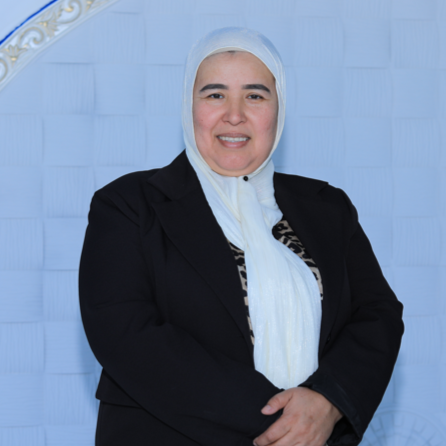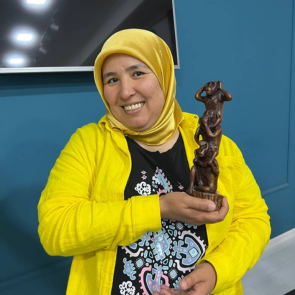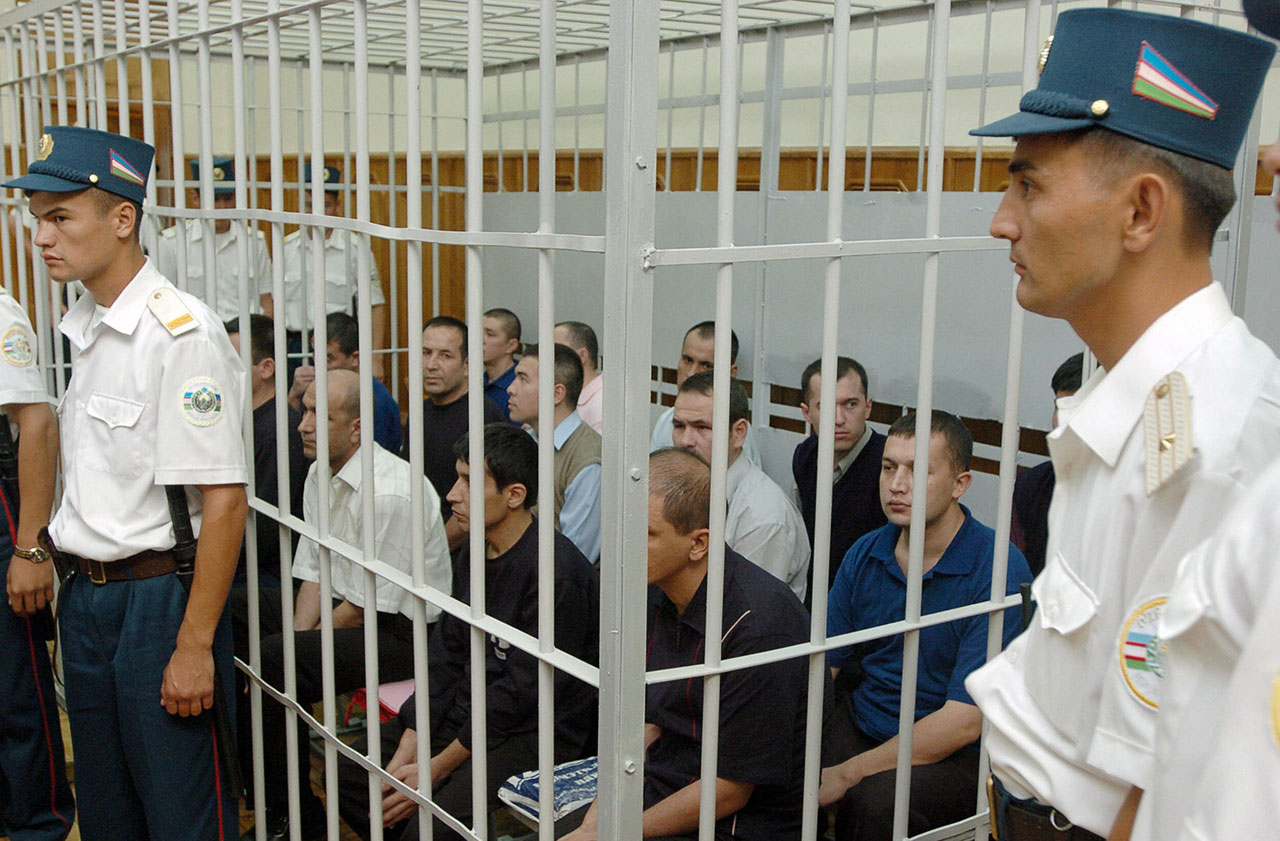
Sharifa Madrakhimova
The annual Front Line Defenders Award for Human Rights Defenders at Risk was established in 2005 to honour the work of HRDs who are courageously making outstanding contributions to the promotion and protection of the human rights of others, often at great personal risk to themselves.
Sharifa Madrakhimova Murodovna, an Uzbekistani woman human rights defender and journalist, grew up in a rural village in the Uchkuprik district of Fergana Region, in a conservative society. When she was in 6th grade at the local district school, as a keen reader and young intellectual, she decided to senda letter to the district newspaper to complain about a local educational magazine that had not been delivered to her school in several months. The letter from Sharifa surprisingly led to the issue being resolved. After this, people in the community started coming to her house to ask for help to write articles, letters of complaint and petitions about various community issues.
She grew up to be a respected community leader and later, inspired by her talent for writing, made a name for herself through her work as an independent journalist writing about issues impacting her community. This ranges from civil and political rights, and environmental rights and accountability, to the rights of women, farmers and people with disabilities. Through her work, Sharifa advocates for social change in the region, striving to promote justice and equitable decision-making by authorities.
Sharifa went on to study journalism at the National Universityof Uzbekistan in the capital city of Tashkent. She later worked as a journalist for the newspaper “Ma’rifat” (Education) from 1999 to 2020, and in 2020 she started working as a correspondent in the district newspaper “Buvayda kuzgusi”(Mirror of Buvayda) in Fergana Region. In November 2023, Sharifa was fired from Mirror of Buvayda after she spoke outagainst forced subscription (government enforced obligatory paid subscription) to the newspaper.
In the past, Uzbekistan was a very isolated and conservative country with restrictions on individual freedoms. In Uzbekistan, at the time Sharifa completed school, it was still common forparents to refrain from sending their daughters to obtain higher education, and instead to marry them off. However, her father, a secretary of the “kolkhoz” (collective farm) Komsomol and later a cotton brigade leader at a “sovkhoz” (state farm), consistently supported her pursuit of education. He was an advocate for equal rights and girls receiving an education, which gave Sharifa the space to flourish.
The death of President Islam Karimov in 2016 paved the way for improved transparency and freedom of speech in Uzbekistan. In particular, people began to express their opinions more freely on social media. Sharifa took advantage of this and did not limit herself to solely writing articles in the newspaper she worked for, but began commenting and posting on various social media networks, as a voice for the people. She became active in public service journalism, as her journalistic work naturally evolved into human rights work.
As a highly trusted voice by vulnerable people, she was increasingly approached by people asking her to write about their issues; such as forced labour, disability rights, and abuses by district and regional officials. Her work was having impact. Over the years, people and government officials came to know about Sharifa, not only as a sought-after blogger, butas a voice to raise social issues
While freedom of expression has improved under the new political leadership, Sharifa has still faced a range of obstaclesto her journalistic and public activities, but has stayed strong and resisted through it all. The people who want to silence her resort to spreading lies about her through social media. They also threaten her family and children. Her brother was fired from his job because of his association with her.
Smear campaigns and intimidation tactics like these are particularly harmful for independent journalists like Sharifa, because the defamation besmirches her reputation, making it hard for her to find work. In November 2023, Sharifa was fired from Mirror of Buvayda after she spoke out against forced subscription to the newspaper.
In April 2024, Sharifa and another Uzbek woman human rights defender were attacked outside her home by a pro-government blogger and another unidentified man. Sharifa reported the attack to the police, naming the blogger as one of the perpetrators. However, law enforcement concluded that they found no wrongdoing on the blogger’s part. Two days later, the blogger published a defamatory video on YouTube about her.
Facing these constant threats is not the only burden she bears. Listening to and telling the stories of the people she writes about weighs heavily on her shoulders. She feels the community’s hopelessness and shares their distrust of state organisations,
Despite the challenges, Sharifa derives deep satisfaction from her work, engaging directly with individuals, sharing their stories and making a positive impact on people’s lives. Among her greatest successes are when justice is delivered in the cases of individuals on whose behalf she advocates.
It is Sharifa’s driven mindset, courage and honesty that giveher the ability to continue her work, alongside her profound love for her profession and her unwavering dedication tohelping others. She says, “I consider my activity important and necessary for society and I intend to continue it, because if everyone keeps silent then there will be no development”. She has been an inspiration and an example for other young women in her society to break through the glass ceiling and pursue their dreams. Sharifa Madrakhimova’s journey from a rural village in Uzbekistan to becoming a prominent community leader and journalist demonstrates her commitment and resilience to the cause of human rights.



